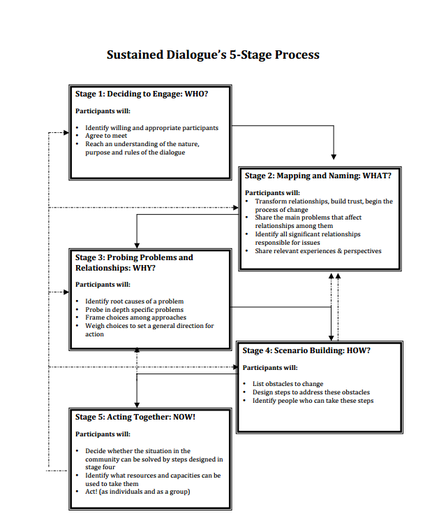Look, you can’t study the entire time. And although I believe you when you say that holing up in your dorm room with some friends to play video games or binge-watch Game of Thrones are ways of socializing, that’s not something you can add to your resume.
Whether you plan on looking for a job, applying for graduate school, or seeking funding, you need to build a competitive resume while in school.
Strategic resume building as a college or grad student includes focusing on one or two activities and demonstrating an ongoing commitment through increased involvement over time. Perhaps you start out as a participant your freshman year, and graduate as the club’s treasurer. Or you offer to help with event planning and fundraising. Maybe you even team up with students from other schools, and expand your organization to include other campuses.
I want to highlight two national organizations available at some of the nation’s leading universities, emphasizing the advantages of joining these or starting your own.
Sustained Dialogue Campus Network (SDCN)
SDCN’s mission is to develop everyday leaders who engage differences as strengths to improve campuses, workplaces, and communities.
WHAT IT ISSustained Dialogue is about conflict resolution through effective communication. Too often that which is foreign to us is interpreted as a threat. We see this in the context of international crises all the time. But students know this also happens on campus. People elect to self-segregate in the dining hall, in the classroom, or in dorms. Perceived differences sometimes manifest themselves as rivalries, or, worse, enmity. Sustain Dialogue is a tool to mitigate conflict by altering our perception of those we deem foreign, different, "other." The premise is to keep talking, because it is through conversation the unknown becomes familiar. SDCN'S HISTORYSustained Dialogue Campus Network is the invention of Dr. Harold Saunders, a conflict resolution expert with over 40 years of experience. In the 1980s Dr. Saunders served as the Deputy Assistant Secretary of State to Henry Kissinger, helping mediate the Arab-Israeli peace agreements. In 1992 Dr. Saunders implemented the 5-Stage Process of Sustained Dialogue in Tajikistan, after the dissolution of the Soviet Union prompted a civil war. In 1999 Princeton students began drawing on Sustained Dialogue to navigate issues associated with race relations on campus. In 2002 Dr. Saunders founded the International Institute for Sustained Dialogue (IISD), and the program spread to the University of Virginia and Dickinson College. SDCN is now a high priority for the IISD, teaching future leaders how to resolve conflict and establish relationships through continued dialogue. WHAT STUDENTS DO
Lets say you hear about this SD thing on campus and decide to check it out. An organizer tallies up participants and breaks them into small groups of 5-8, with 1-2 moderators. This is your core group, which will meet on an ongoing basis for the remainder of the year. The moderator is there to provoke discussion, as well as facilitate communication when group members are nervous, angry, or unsure of what to say. The participants are deliberately matched so as to challenge each other. Groups are meant to self-direct the topics of conversation, with an emphasis on identifying and addressing problems on campus related to racism, sexism, homophobia, or other forms of conflict.
Meetings can get tense - crying, angry words, or silence - but the point is to keep talking through the uncomfortable moments.
WHY IT'S WORTH LOOKING INTO
I was a member of Notre Dame’s Sustained Dialogue chapter during my undergraduate years, starting as a participant and then working my way up into a leadership position. In 2007 I attended the annual training at Princeton University, where I met the organization’s founders and heard more about SDCN’s vision for the future. This includes expanding SDCN chapters to more college campuses, changing the way future leaders understand and approach conflict.
My SDCN training stayed with me long after Notre Dame. The emphasis on conflict resolution prepared me for navigating difficult conversations with family members, ornery professors, and demanding clients. Trust me - when SDCN is on your resume, someone will ask you about it during an interview.
Prospective graduate schools and employers are usually intrigued by the concept and impressed with SDCN’s ability to prepare people to be leaders who leverage diversity to improve our communities and workplaces.
Getting Involved There are a few ways you can participate in SDCN:
- See if SDCN has a program on your campus and become a member
- Initiate a chapter on your campus
- Apply for a job, internship, or volunteer position with SDCN
Check out Part II, detailing how two former SDers from Princeton started their own national organization, Students For Education Reform.
 A 2011 EDUCASE survey reports that 90% of American undergraduates are on Facebook, with 58% of those students logging in daily.
Cultivating Your Social Media Presence It is completely possible to use Facebook to further your academic and professional goals. Although it was originally created to link college students, Facebook opened registration to anyone in 2006. Since then, schools and businesses have used the site as a way to vet applicants. A 2012 Kaplan study reports that 87% of colleges and universities check a student's profile when considering his or her application.
There is a right way and a wrong way to get yourself noticed by an admissions committee or hiring manager. Read on to make sure you are using Facebook to your advantage.
The Right Way to Use Facebook In College Dialogue With Classmates: Converse with other students about projects, assignments, and exams.
Staying Connected With Old and New Peers: If you go to conference and hit it off with someone, friend them and stay in touch. And do not forget your friends from high school and undergrad. Focus on growing your network.
Research: Use Facebook to poll your network about great books, where to find specific archival sources, preferred laboratory instruments, or even ask volunteers to fill out a survey for a study you are running.
Find Extracurricular Activities: Figure out what kind of groups are on or near campus. If you want to join a running team, a juggling club, or a volunteer organization, you can look over their Facebook page and see if the group seems like a good fit for you.
Event Tracker: What's going on, either on campus or in the surrounding area?
The Wrong Way to Use Facebook In College Surfing Facebook In Class: Use Facebook to connect with your classmates outside of class. Listen when you are actually in lecture.
Friending Your Prof or TA: Really, for real, do not do this. They are not your friends, they are your instructors. It is perfectly reasonable that you may develop a friendship after taking a course with someone, but even after the class wraps up, wait for that person to reach out to you over social media.
Poking Your Prof or TA: Similarly, don't even THINK about "poking" them. Mark Zuckerberg explained during a Facebook webinar," When we created the poke, we thought it would be cool to have a feature without any specific purpose. People interpret the poke in many different ways, and we encourage you to come up with your own meanings." Therein lies your problem - you do not want to come across as being cutesy, or, worse, flirtatious, with your instructor.
Documenting Your Rebel Phase: If you post pictures of yourself binge drinking, doing drugs, or participating in some kind of illegal activity, you are sending a message to applications committees that you do not care about rules. I'm not your mother, so I'm not going to lecture you on doing these things. Just know that if you choose to publicize them on Facebook, there's a high chance you will not receive the offers you were hoping for. There are privacy settings for a reason, people.
Bullying: Most schools have a zero tolerance policy for bullying and hazing. Employers are committed to providing non-hostile work environments for their employees. So if you are harassing someone on Facebook for all the world to see then (1) Schools and employers won't want you and (2) Shame on you. Stop it.
Beyond Facebook Incredibly, people are finding work on outlets like Twitter, where some employers look at an applicant's profile and activity and see where, in 140 characters, they stand out from other candidates. LinkedIn is also a fabulous resource for college students who want to start building a professional network.
Finally, if you want to start a blog while a college student, the same rules apply regarding protecting your anonymity. If you're doing something you wouldn't want your parents to see, don't make it searchable for your school or boss either.
 I don't know about you, but sometimes I forget how important it is to prioritize "fun" books in the midst of work-related reading.
Especially in school, it's easy to neglect literature when you're worried about getting through dense textbooks in time for class.
That's why I'm inviting you to join in an online book club, From Left to Write. I recently became a member, and will be writing once a month on my response to the assigned book.
What They Do From Left to Write's website: From Left to Write takes the book club online where our bloggers/members create a virtual discussion of a book and how it relates to their lives and in turn, everyone’s lives.
From Left to Write was founded June 2010 and is now run by Thien-Kim Lam.
From Left to Write holds monthly online book clubs, featuring a range of topics and writing styles. Our bloggers do not write traditional book reviews, but instead use the books we read as inspiration for blog posts on our personal blogs that are about our own experiences. The authors join in on the discussion as well, to give their perspectives on the various posts. We invite you to buy the books, read along with us and add your voice to the discussion. Happy reading!
In other words, this is an online book club dedicated to writing posts that connect a story with one's personal experiences. What I Do I let everyone know what the book of the month is and the target date to read it by. I will write a post about the book by FLTW's deadline, and it will circulate among the book club's members.
Members of the book club will read and comment on each other's posts, and you are welcome to also check out their reviews and leave a note. What You Do Catch the announcement for the book of the month. Read it by the deadline. Feel free to leave comments here, on other members' posts, or start your own blog!
Participating in this kind of book club stands to benefit you as a student in two major ways. First, it gives you some non-academic reading material, so that you can escape school for a little while through a good story. Second, it allows you to engage in the kind of scholarly discourse expected of college-level students.
That is, by reading the thoughts of others and offering your own critiques and comments, you are operating a more sophisticated level of analysis than a regular book report requires.
Moreover, our responses, which connect a book's plot, theme, or symbols to our own life experiences, serve as a model for what a winning college or scholarship applications might look like. Remember - application essays almost always look for you to write a semi-autobiographical account of something meaningful that has happened to you.
SEPTEMBER'S BOOK
 Josephine Hurst has her family under control. With two beautiful daughters, a brilliantly intelligent son, a tech-guru of a husband and a historical landmark home, her life is picture perfect. She has everything she wants; all she has to do is keep it that way. But living in this matriarch’s determinedly cheerful, yet subtly controlling domain hasn’t been easy for her family, and when her oldest daughter, Rose, runs off with a mysterious boyfriend, Josephine tightens her grip, gradually turning her flawless home into a darker sort of prison.
Written with the style, dark wit and shrewd psychological insight that made SMASHED a bestseller, Zailckas’s first novel is unforgettable. In the spirit of classic suspense novels by Shirley Jackson and Daphne DuMaurier, MOTHER, MOTHER is the terrifying and page-turning story of a mother’s love gone too far, and the introduction of a commanding new voice in fiction.See the full description on Amazon. Since this book isn't available until September 17, readers can plan on finishing by October 1. I'll probably post my response before then, since the FLTW deadline is earlier.
I hope you'll consider joining in!
Why the Huge Price Tag? No college is exactly inexpensive, whether you're paying $10,000 for in-state tuition at a reputable state university, or forking over $40,000 for the private school with the prestigious degree name. So what, exactly, are you paying for - and are the more expensive schools always worth the extra money? Classes The average student takes 4-5 courses a semester (the equivalent of 12 to 15 credit hours). A large chunk of tuition pays for your classes.
Tip: Calculate The Cost Per Class
I remember before I went off to college, my father told me that every time I skipped class, I was wasting money. I once calculated it out - in 2004, we were paying around $35,000 a year for me to attend Notre Dame. I divided tuition by my five courses, then by the number of times each class met per semester.
I remember figuring that each class was roughly $30. Believe me - there were plenty of mornings I didn't feel like going to Calculus at 8:00 am. But I couldn't justify an extra hour or two of sleep when I knew how much money I would be wasting. Your Professors and Teaching Assistants You're paying their paychecks. I've had some wonderful professors and T.A.'s who genuinely cared about their students' performance.
Good instructors are the ones who are accessible and available to help you, answer a question, and point you in the right direction when you are struggling.
However, there are some not-so-great (even truly terrible) college-level instructors who find teaching burdensome and their students annoyances.
Tip: Good or Bad - Your Instructors Are Paid to Help You - So Make Them!
Never hesitate to ask an instructor for help, a tutoring referral, or a letter of recommendation. And if they ignore your email, go in during their office hours. You can be respectful of their time and busy schedule, but ultimately, you pay to go to school there, and they are paid to help you get through your classes. School Facilities, Activities, and Services Guess what? The library, computer lab, study center, and school health services aren't actually free - they just charge you for it upfront in your tuition.
Tip: Use the Services Available to You
If you're struggling in your Physics class, go to the Tutoring Center! If your computer crashes, don't email your professor 2 hours before the paper is due and ask for an extension - it's not a valid excuse since there are always computers available for students on campus.
Finally, if you are dealing with an illness or need someone to talk with, schedule an appointment through Health Services to see a doctor or counselor. That's what they are there for. Extras Yay - it turns out your Student ID card is good for $200 in your school's student center! Free pizza! Except - wait - no...that money is just part of your tuition.
Tip: Nothing's Free
You can blow those extra dollars on pizza if you want, but consider saving it for buying things like toothpaste in your school's convenience mart. The Degree Name This is the tricky part. On the one hand, paying extra tuition for school names like Harvard, Yale, and Princeton are supposed to eventually pay you back in the best jobs with the highest salaries. On the other, tuition at Ivy League and other private institutions are artificially inflated "just because": because they traditionally are, because we expect them to be more expensive, and because they want to be more costly than lower-ranked schools.
Tip: If you are planning on going into a highly competitive field or applying to graduate or a professional school, sometimes it is worth paying more for a degree name.
It may not be fair, but 9 times out of 10, the candidate from Prestigious University will win over the candidate from Never Heard of It College. So...Is It Worth It? If you're willing to put in the time, effort, and studying, college is absolutely worth the price tag. It's up to you to decide if the most expensive schools are worth investing in, based on your career goals. But in general, the college degree is the new high school degree. So go ahead and consider money well spent, and keep in mind the ways you can maximize your investment.
 If you are a rising senior, or college student with graduate school aspirations, summer is a great time to start researching programs.
One form of research, if your time and budget permits, is visiting the schools themselves. You can arrange to spend the night in a dorm if classes are in session in order to get a feel for what an average day on campus might be.But what if you can't go visit?
Individual University and College Websites Let's say you live in Washington state and you are somewhat interested in applying to the University of Washington, Washington State University, and Pacific Lutheran University. Perfect. Start there. Search for the school, and look at their home page. There is going to be a lot of information on there. There are three main pages I suggest you look at initially: Degree Programs (Majors), Financial Aid, and Campus Life (Student Life). This gives you a sense if they have majors you are possibly interested in, money available to students based on merit or need, and some of the extracurricular activities hosted on campus.It's also a good idea to take a look at tuition, the size of the school, the number of students, and the teacher to student ratio. US News - Education What if you live in Washington, but have no interest in staying in-state? Or your dearest ambition is to eventually go into business and you need to know the top-ranking schools for undergraduate business programs?US News is a fantastic resource for college information, providing rankings for schools based on a number of criteria. "Best Undergraduate Business Programs" lets you know that the University of Pennsylvania has the number one program, followed by the Massachusetts Institute of Technology (MIT).There are also rankings for schools by national standing, liberal arts programs, regional schools, best value, and the best schools for "B students," among others. College Prowler College Prowler is "by students, for students." It encourages interaction between current and prospective students through features like "Ask Me," where registered users can ask students college-related questions.
"Chance Me" is another feature where registered users can plug in their data and get students to weigh in on their chances for getting into the school(s) of their choice. A word of caution: these are other students evaluating you. The admissions office has the ultimate say. College Confidential Similar to College Prowler, College Confidential is another interactive forum for students. The best two elements of this site are its "College Vibe" and "Ask A Dean" pages. College Vibe lets students update pictures and video from their college visits to share with others. Ask A Dean gives students access to an administrator's opinion and advice regarding the college process.There is also a separate forum for aspiring graduate students, or those seeking admission to medical school, law school, and business school. Research Now to Save Time Later Put in the legwork now so that come August, when it's time to start filling out the applications, you already know where you want to apply and why.
If you would like assistance with researching and applying to schools of interest, as always, feel free to contact me or leave a comment.
 Calvin expresses that thought we've all had on a May day. Summer is so close...
School's Out - Now What? I'm the last person who is going to suggest you keep studying hard, all through summer, purely for fun. If you are attending summer school, that's entirely different. But for rising and graduating seniors, it's important to give your mind a break for a couple of months, before leaping back into the school year.
That said, there are a couple of things you can do during the summer to be prepared for fall deadlines. Rising Seniors RESEARCH COLLEGESThe summer is a great time to start researching which colleges you want to apply to in the fall. Think about what features are important to you in choosing a school, and make a list of schools that appear to meet your criteria. If your family's schedule and budget allows, try to visit at least two of the schools on your list. Sometimes just walking around a campus can help you discern whether or not the school is a good fit for you.SCHEDULE YOUR SAT/ACT TESTIt's better to take the SAT and / or ACT early in the year. If you are not satisfied with your results, you leave yourself time to take the exam again before applying to colleges.GET A JOB OR HOBBYIf you aren't already working or involved in some type of volunteer work or sport, you can take advantage of summer to add work, volunteer, or sports experience to your college application resume. Schools want well-rounded students, and applicants need to demonstrate that they have interests beyond the classroom.READ AND WRITEMake a goal to read 3 books (or 10 if you are already an avid reader) about anything. The books do not need to be academic. Just keep your mind active and engaged. Since you are going to have to prepare a college application essay in the fall, practice writing in the summer. Write anything - a journal, a blog, letters to your grandma. Anything. Graduating Seniors You are officially a high school graduate - congratulations! In today's world, however, the college degree is the new high school degree. Which means you still have an average of four more years ahead of you as a student. Definitely take time to celebrate your accomplishment with your friends and family, and enjoy your summer. There are a few things you can make time for now that will ease your transition to college life in the fall.
ARRANGE YOUR LIVING SITUATION
Most schools assist you in the process, requiring freshmen to live on campus. They try to match roommates based on a questionnaire about studying and sleep habits. If your school assigns you a room and a roommate, contact your future roommate(s) during the summer. If you introduce yourself early, there is the opportunity to arrive already friends (or at least friendly).
In the unlikely event your early correspondence with your roommate suggests it would be harmful or unsafe for you to live together, it is better to alert the school with a room change request now, instead of in the fall.
FIGURE OUT YOUR COURSES
The course catalog is online and you will have to sign up for classes in August. Get a sense of what programs you want to pursue, and the courses required for each. If you are really ambitious, you can always look up course syllabi from past semesters and start some of the reading over the summer. Email the professor to find out if there are any changes to the syllabus if you are worried about doing work for no reason.
FIND AN INTERNSHIP
Think you are interested in pursuing a Journalism degree? See if a local newspaper will let you intern for the summer, so you know if you want to make Journalism your major. Note that internships are not paid, so if you desperately need money...
GET A JOB
College is expensive. Even if your tuition is taken care of, you will still want extra cash for clothes, snacks, sports equipment, going to the movies, dates, and trips with your roommates. If you are paying your way through college, make getting a job top priority.
Take a Break, Read a Little, and Relax a Lot It's summer - enjoy it. But if you can implement even one of these tips, you will find yourself in a better position come fall to not be overwhelmed by additional tasks on top of your normal workload.
Not sure where to apply? I talk you through choosing colleges before you start the applications process. Save yourself a lot of time and money by doing your research and figuring out which schools are right for you based on:
Location: Close to family? Do you prefer an urban or rural setting? Can you survive a cold climate?
Size: How big is the school's campus and it's student body? What is the teacher to student ratio?
Cost: How much is tuition, plus room and board? Are there scholarships available?
***FILL OUT THE FAFSA!
Interests: How does the school serve your interests? Does it have the major you want and an active alumni network with a demonstrated record of placing graduates in jobs?
Finally - honor your preferences, interests, and abilities. I strongly suggest you think twice about applying and attending a school solely based on factors such as your parent went there, your significant other or best friend is going there, or your sibling is already attending.
Ultimately, you are the one going to class, taking the tests, and calling it home for the next four years. Make sure you choose a school you actually want to be at.
Any questions about how to research schools?
What factors are important to you, when deciding where to apply?
|









